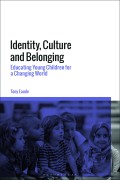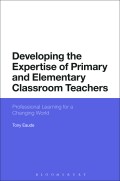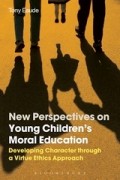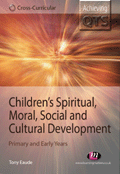This page gives the abstracts fourteen academic peer-reviewed articles written by Tony Eaude or where he was lead author. The full text, which is mostly not available here because of restricted copyright, can be made available for small numbers of copies as a pdf file by contacting tony@edperspectives.org.uk
- Reflections on how young children develop a sense of beauty and should be guided in doing so,
This article was published in the British Journal of Educational Studies (online only- print version to follow) https://doi.org/10.1080/00071005.2023.2241889 (this is open access)
ABSTRACT
This article explores tentatively how young children develop a sense of beauty and should be guided in doing so. Beauty is partly a matter of personal preference, but it implies a more profound and considered idea than what is pleasing or attractive. Beauty contributes to well-being and a flourishing life. Since ideas of beauty vary over time and are transmitted through culture and socialization, these are affected by socio-cultural factors such as gender, ethnicity, class and age. Children’s perceptions of beauty often differ from those of adults. A sense of what is beautiful or otherwise is based mainly in emotional and sensory responses but also involves cognitive processes and judgements. Unconscious learning by immersion in beautiful environments helps children sense what is beautiful. They benefit from a wide range of opportunities and experiences and time to dwell on these and to re-present them kinaesthetically, visually and using language. While the arts and nature provide particularly fertile opportunities, aesthetic development can occur in most contexts. The role of adults should be more that of facilitator, providing opportunities, encouragement and example, than instructor. Implications for the education of the whole child are considered.
- Revisiting some half-forgotten ideas on children’s spirituality, International Journal of Children’s Spirituality, 28 (1), 22-37
ABSTRACT
This article revisits various ideas from the literature on children’s spirituality which have elicited less attention in recent years, notably those of researchers who emphasise the contexts of children’s lives and those whose research uses children’s narratives. Key aspects meriting further investigation and research are suggested, especially the idea of the spirituality(ies) of societies, rather than only of individuals, and the importance of children’s agency and narratives. It is argued that spirituality should be seen as a process rather than a thing, or a set of practices; and that considerations of power, notably factors such as gender, race, class and age, are too rarely addressed. Some cautionary words about the current discourse in children’s spirituality and suggestions for how research should be conducted are presented, calling for a less individualised view with more emphasis on context and culture and on how the manifestationsof children’s spirituality vary at different ages.
- ‘The role of culture and traditions in how young children’s identities are constructed’ International Journal of Children’s Spirituality, 24 (1), 5-19. It summarises some key ideas discussed in more detail in the book ‘Identity, Culture and Belonging: Educating Young Children for a Changing World.’
ABSTRACT
This article explores how cultures and traditions influence the construction of young children’s identities. Identity is conceptualised as a constantly changing narrative based on how an individual sees him or herself and how s/he is perceived. We all have multiple, intersecting identities. Different meanings of culture are discussed, highlighting norms and values, ‘culture as-the-arts’, and space for growth. Primary and secondary socialisation is emphasised, recognising the influence factors such as gender, race, class and religion. The effect of the home and of the macro-culture and different micro-cultures and traditions is considered. In relation to children’s spirituality, trusting relationships and hospitable environments, and the need to counter messages given by an individualistic and consumerist macro-culture are highlighted. An apprenticeship approach is advocated, where adults encourage questioning and strive to maintain children’s sense of agency, with a gradual transfer of power as children become older and/or more confident. It is suggested that researchers and practitioners should take more account of external factors such as gender, race and class in relation to children’s spirituality.
- ‘Fundamental British values? possible implications for children’s spirituality’ International Journal of Children’s Spirituality 2018, 23 (1), 67-80
ABSTRACT
This article argues that the statement of fundamental British values, as introduced in England’s education system in the period 2012 to 2014, is problematic, not least in relation to children’s spirituality. The context of the introduction of fundamental British values is outlined. The values chosen are more contested than they may seem, being neither fundamental nor distinctively British. How the idea has been conceptualised and implemented has adverse consequences for children’s understanding of identity, especially for some already marginalised groups, and may encourage a limited, superficial view of spiritual, moral, social and cultural development (SMSC). This risks excluding some groups, especially Muslims, in the current political context, and discouraging open discussion in schools of controversial topics, when such discussion helps to reduce the danger of radicalisation. Consideration of the impact of statements of values, however apparently uncontroversial, must take account of the power of those formulating them and the wider context.
- ‘Humanities in the primary school – philosophical considerations’
This article was published in Education 3-13, 2017, 45 (3), 343-353
ABSTRACT
Drawing on a range of philosophical traditions, this article argues that the humanities are essential aspects of the development of the whole child. The humanities help children to understand themselves and other people in relation to place, time, belief, identity and culture and to become empathetic, thoughtful and critical citizens. Learning the content, language, concepts, skills and ways of working associated with separate disciplines is important, as is exploration of key ideas related to human experience and culture, including controversial ones. Defining the humanities in the primary years by the types of knowledge, qualities and values involved may be more appropriate than by subject. These can be learned, and reinforced, in all subject areas, with some offering particularly fertile opportunities, and through cross-curricular approaches. An emphasis on factual knowledge is too limiting, with active, first-hand experience helping to engage and include children. To teach and demonstrate appropriate ways of working and thinking, teachers require pedagogical content knowledge and enthusiasm as well as subject knowledge.
- The future of the humanities in primary schools – reflections in troubled times
This article, co-authored with Graham Butt, Simon Catling and Peter Vass, was published in Education 3-13, 2017, 45 (3) pp 383-395.
ABSTRACT
This article reflects on the implications for practitioners, researchers and policy-makers of the future of the humanities in primary schools in the light of the challenges facing future generations. There is wide divergence in the four jurisdictions of the UK. The humanities are perceived as important, in principle, though curriculum frameworks differ. However, the status of the humanities is often uncertain, in practice, given the current emphasis on outcomes in literacy and numeracy. There is a lack of robust research on how, and by whom, the humanities are taught. The more theoretical articles suggest that the humanities, broadly conceived, are an essential aspect of young children’s education – to enable a deeper understanding of human culture and identity, and to develop the qualities and values needed in a diverse world. Additionally, curricular breadth is required alongside a realisation that narrowly focusing on propositional knowledge is limiting. While this has implications for the whole curriculum, History, Geography and Religious Education have key roles in meeting these aims and in engaging and motivating young children. A stronger policy steer is called for, to ensure that schools give more priority to humanities education, with greater investment in professional development in Initial Teacher Education and beyond.
- ‘Creating hospitable space to nurture children’s spirituality -possibilities and dilemmas associated with power’
This article was published in the International Journal of Children’s Spirituality in August- November 2014, 19 (3-4), 236-248.
ABSTRACT
This article considers the idea of hospitable space and raises questions about what this entails in nurturing children’s spirituality in both religious and non-religious contexts. In particular, dilemmas associated with the use and abuse of adult power and authority and systemic forms of power are explored. It is argued that hospitable space is open, inclusive and reciprocal, with mutual learning. Adults must help to set the boundaries within which open exploration can take place, empowering children without overcontrolling activities or outcomes or co-ercing children into particular responses. The difficulty of creating hospitable space and the dangers related to power and control, even in activities intended and widely perceived as benign, are illustrated in relation to play and school classrooms. Structural issues such as a demand for conformity and a culture of competition and pace militate against creating and sustaining hospitable space to nurture children’s spirituality. High-stakes assessment and accountability mechanisms makes this especially difficult in formal school settings.
Key words: hospitable space, children, spirituality, power, classrooms
- What makes primary classteachers special? Exploring the features of expertise in the primary classroom
This article was published in the journal Teachers and Teaching: Theory and Practice in February 2014, 20 (1), 4-18.
ABSTRACT
This article explores the nature of teacher expertise in the primary school classroom, drawing on theoretical models of expertise and of teaching expertise. It challenges simplistic models of an ‘outstanding’ or ‘master’ teacher to argue that since teacher expertise is both situated and prototypical, it is manifested in different ways according to context and the individual. The complexity and contingency of the primary school classroom means that the classteacher’s expertise must be multi-faceted to enable appropriate responses to events and match between learners’ needs and teachers’ knowledge. Such expertise is conceptualised in terms of domain, craft and personal/interpersonal knowledge, with the last of these especially important in the primary classroom, and domain not equated with subject knowledge. This leads to a preliminary typology of what distinguishes the primary school classteacher with a high level of expertise. The conclusion considers possible implications for research, emphasising the need for detailed, collaborative empirical work and academic and professional discourse, considering in greater depth the nature of expertise of teachers working with young children, especially in the classroom.
Keywords: expertise; primary education; classteacher; pedagogical knowledge
- Starting from how young children learn – a rationale from psychology for religious educators in the early years
This article was published in the Journal of Religious Education in 2011, 59 (3) 61-71.
ABSTRACT
This article seeks to provide a rationale, drawing mainly on theory from psychology about how young children learn, for how religious educators should work in the early years, recognising key challenges, especially those related to the varying purposes of religious education in different contexts and the influence which adults can exert. The importance of children’s agency and engagement and of both conscious and unconscious processes is emphasised. To sustain and develop the necessary attributes and dispositions for learning, young children need a predominantly experiential approach, with opportunities to represent activities and experiences in different and developmentally-appropriate ways. This involves encouraging the search for meaning and connectedness, in an environment which offers ‘hospitable space’, where adults invite and guide rather than prescribe. This is exemplified by considering the role of play and story. Possible implications both in schools and elsewhere and for faith-based contexts are discussed.
- Happiness, Emotional Well-being and Mental Health – what has children’s spirituality to offer?
This article was published in the International Journal of Children’s Spirituality in August 2009,14 (3) 185-196.
ABSTRACT
This article discusses the concepts of happiness, emotional well-being and mental health in the light of recent work on children’s spirituality to argue that such a consideration can help to avoid simplistic and individualistic views of each. Distinguishing between happiness as short-term gratification and as longer-term flourishing, the latter is presented as involving the search for meaning. Critiques of programmes designed to develop emotional well-being are discussed. The reasons for patterns of emotional response are explored, including models of attachment and prior and present experience. The importance of adults being emotionally attuned to children to help build up the attributes associated with good mental health is emphasised. For happiness and emotional well-being to be explicit ends in themselves tends to promote introspection and a sense of vulnerability. They should be seen as by-products of children flourishing as a result of sensitive relationships and the types of activities through which children’s resilience and sense of agency are re-inforced.
- Should religious educators be wary of Values Education?
This article was published in the Journal of Religious Education vol 56 (3) pp. 57-65 in 2008. It considers the features of Values Education, as a whole-school approach to moral development, notably the emphasis on example and habituation, supported by discussion and reflection, based on universal values.
ABSTRACT
This paper considers the features of Values Education, as a whole-school approach to moral development, notably the emphasis on example and habituation, supported by discussion and reflection, based on universal values. Four main questions are addressed, the breadth and precision of the values identified, the emphasis on universal values, how Values Education relates to the wider educational process and its link with spiritual development. Using the term virtues for intra- and inter-personal values is suggested and the idea of primary and secondary values raised. It is argued that Values Education has many of the features of a tradition, but that two main hazards must be avoided, too general and unspecific a view of values within a culturally diverse society and too narrow and individualistic an approach to spiritual development. The relationship with Religious Education and potential for RE to enrich Values Education are considered.
- Strangely Familiar? Teachers Making Sense of Young Children’s Spiritual Development
This article was published in the journal Early Years – an international journal of research and development in November 2005. Drawing on Tony Eaude’s doctoral thesis ‘Beyond Awe and Wonder: how teachers of young children understand spiritual development’, this article discusses the policy, professional development and practical implications in relation to young children.
ABSTRACT
I discuss philosophical and methodological difficulties in researching young children’s spiritual development. I describe my research involving detailed discussions with, and observations of, fourteen teachers of four- and five-year olds. I highlight key issues, including what distinguishes spiritual from other sorts of development, the nature of children’s spiritual experience and to what extent young children can and do engage in spiritual experience. Drawing on a critical evaluation of common features of the teachers’ understanding, I sketch out features of a new and inclusive understanding of spiritual experience as that which relates to identity, place and purpose. I consider possible implications, in terms of policy, professional development and practice, based on the conclusion that environments and relationships are more important than specific experiences, techniques and skills.
- Do young boys and girls have distinct and different approaches and needs in relation to spiritual development?
This article was published in the International Journal of Children’s Spirituality, volume 9, number 1, 2004. It is an academic article but written in accessible language, seeking to open up a way of exploring the relationship between gender and spiritual development. It is argued that a consideration of this issue can deepen one’s understanding of spiritual development – whatever one’s definition – and of gender. Empirical evidence related to mental health, crime and educational attainment is presented, as well as research evidence related to gender in areas commonly associated with spiritual development.
ABSTRACT:
Difficulties are outlined in how to consider whether boys and girls have distinctive approaches and needs in relation to spiritual development, especially the lack of any agreed definition of spiritual development and the nature of the research literature relating to gender. I explore this without presupposing, or excluding, any particular definition, arguing that, whatever one’s assumptions and beliefs about spirituality, these influence, and are influenced by, assumptions and beliefs about gender, and vice versa. I present empirical evidence on aspects associated with personal wellbeing indicating outcomes strongly differentiated by gender. I examine research evidence in relation to gender within a range of areas commonly associated with spirituality and highlight some gaps. I argue that considering spiritual development through the lens of gender and gender through that of spiritual development can illuminate one’s understanding of both concepts. I suggest some possible implications for future research and for teachers of young children.
- Shining Lights in Unexpected Corners: new angles on young children’s spiritual development
This article was published in the International Journal of Children’s Spirituality, volume 8, number 2, 2003. It is an academic article but written in accessible language, summarising the main lessons of Tony Eaude’s doctoral thesis ‘Beyond Awe and Wonder: how teachers of young children understand spiritual development.’
ABSTRACT:
I consider how an inclusive understanding of young children’s spiritual development can be enriched by research within the psychoanalytic tradition and cognitive psychology. I discuss difficulties of language and definition and suggest that thinking of spiritual experience as a type of experience rather than of spirituality or spiritual development may be helpful. Rather than working from a pre-determined definition, I argue that the meaning of spiritual experience is illuminated by considering a wide range of children’s maturational and developmental needs and considering the boundaries of what may coherently be included as spiritual experience. In exploring research within these two traditions I suggest the integration of the personality as an end-point of spiritual experience which avoids a linear, upward idea of spiritual development. Finally, I consider the implications for research, about spiritual experience itself and for children and their teachers.





